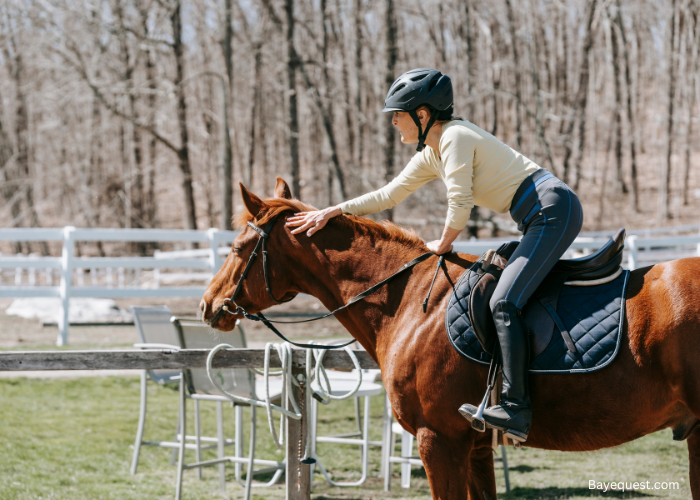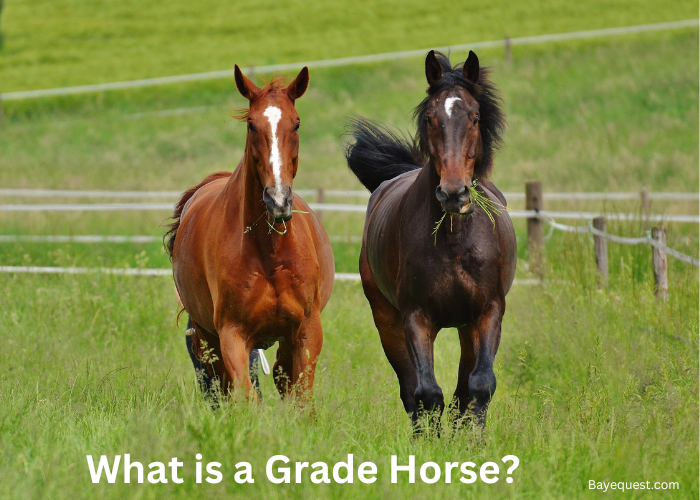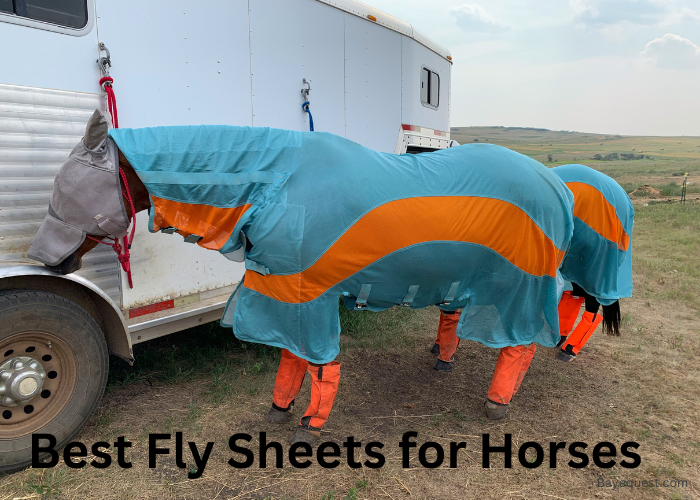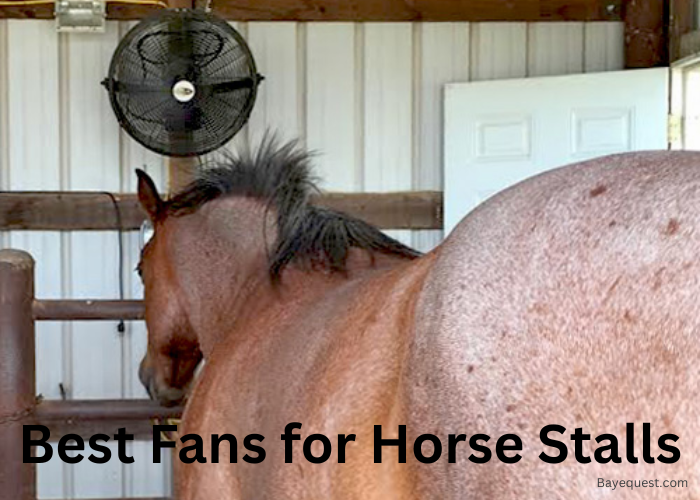Some horses come with fancy papers and detailed family trees. Others don’t. But does that really matter?
Many horse owners and riders care more about ability, temperament, and heart than a name on a pedigree. These horses can be just as strong, smart, and versatile as their registered counterparts.
Whether for work, competition, or pleasure riding, they prove their worth every day.
In this blog, we’ll take a closer look at these horses, what makes them unique, and why so many people love them.
What is a Grade Horse? Key Takeaway
A grade horse is a horse without a registered pedigree or breed association. Its lineage is unknown, unverified, or mixed, making it ineligible for official registration. Some grade horses come from unplanned breeding, while others could have been registered but lack proper paperwork.
What Does Grade Horse Mean?
A grade horse is a horse without a documented pedigree or registration.
This means its lineage is unknown or unverified, and it doesn’t belong to a specific breed association.
Sometimes, it’s a horse that could have been registered but wasn’t due to incomplete paperwork or an owner’s decision.
Most commonly, a grade horse has mixed or uncertain heritage, making it ineligible for breed registration.
Despite this, grade horses are valued for their individuality, versatility, and charm.
Read also: What is a Gaited Horse?
History of Grade Horses
The history of grade horses is as old as the domestication of horses themselves.
Before breed registries and pedigrees became standard, most horses were bred for function, not lineage.
Early humans selected horses for traits like strength, endurance, and temperament. this led to a mix of genetic backgrounds.
In the 18th and 19th centuries, breed associations and registries emerged to maintain pure bloodlines for specific purposes.
Horses without clear documentation of their ancestry were excluded from these registries, and the term “grade horse” began to describe them.
Grade horses were common in rural and working-class communities, where practicality mattered more than pedigree.
Farmers and ranchers often bred horses based on need, creating versatile and hardy animals that could perform various tasks.
Over time, these horses became known for their adaptability and resilience.
Today, grade horses continue to play a vital role in the equestrian world.
While they may lack official recognition, they are celebrated for their individuality and ability to excel in diverse disciplines.
Their history reminds us that a horse’s value isn’t always found in its papers but in its heart and performance.

Why Do Grade Horses Exist?
Grade horses exist for several reasons. The reasons are:
Accidental breeding
Many grade horses are the result of unplanned breeding.
Horses in mixed herds or those bred without a specific goal often produce foals with unknown or mixed heritage.
Non-pedigree-focused breeding
Some breeders prioritize function, temperament, or physical traits over maintaining a pure bloodline.
These intentional yet unregistered horses often become grade horses.
Incomplete or lost registration
In some cases, a horse may meet the criteria for registration, but the owner fails to complete the paperwork.
Lost or misplaced documents can also render a horse “grade.”
Economic factors
Registering a horse can be expensive and time-consuming.
Owners who don’t see a need for registration, especially for non-competitive or working animals, might skip the process altogether.
Mixed heritage
A horse with a blend of breeds may not qualify for any specific breed registry, making it a grade horse by default.
This often happens when owners experiment with crossbreeding for unique traits.
Characteristics of a Grade Horse
Grade horses are a blend of surprises, which makes them special and adaptable to different roles in the horse world.
Here are some of their characteristics:
DNA testing
Grade horses lack documented lineage, but modern DNA testing can provide insights into their genetic makeup.
While it can’t grant breed registration, DNA testing may reveal breed percentages or inherited traits.
This helps owners better understand their horse’s background.
Conformation
Conformation in grade horses varies widely, reflecting their mixed heritage.
Unlike purebreds, which are bred to meet specific standards, grade horses may show a combination of traits from various breeds.
Some have balanced, functional builds, while others may have unique conformational quirks that add to their individuality.
Size
The size of a grade horse is unpredictable, as it depends on the genetic influence of its parents.
Some grade horses are as small as ponies, while others can rival large draft breeds.
Their size often determines their suitability for specific tasks or disciplines.
Colors
Grade horses can display a wide array of coat colors and patterns.
From common solid colors like bay or chestnut to striking patterns like pinto or appaloosa, their mixed genetics contribute to their diverse and sometimes unexpected appearances.
Discipline
Grade horses are versatile and can excel in various disciplines.
They are good in trail riding, ranch work, pleasure riding, and even some competitive events.
Their suitability often depends on their traits, training, and temperament rather than a breed-specific predisposition.
Temperament
Temperament in grade horses is just as varied as their physical traits.
While some inherit calm and steady natures, others might have spirited or independent personalities.
Their upbringing, handling, and training play a crucial role in shaping their behavior, making each grade horse unique in its disposition.
Pros and Cons of a Grade Horse
Pros of a grade horse
Affordability
Grade horses are often less expensive than registered purebreds.
Versatility
Without breed-specific traits, grade horses can adapt to a wide range of roles, from trail riding to general companionship.
Unique characteristics
Their mixed heritage often results in one-of-a-kind physical appearances and temperaments, which makes them stand out.
Hardiness
Many grade horses inherit hybrid vigor, meaning they can be healthier and more resilient than some purebred horses.
No breed expectations
With no breed-specific rules or standards to meet, grade horses are judged on their abilities and personalities rather than their pedigree.
Great for beginners
Many grade horses are well-suited for first-time horse owners due to their diverse temperaments and affordability.
Cons of grade horses
Unpredictability
Their mixed genetics can make physical traits, temperament, and abilities harder to predict.
Limited registration opportunities
Grade horses are ineligible for breed registries, barring them from participating in breed-specific shows and events.
Unknown health risks
While hybrid vigor can make them hardy, grade horses’ genetic background might include hidden health issues that are hard to anticipate.
Market value
Grade horses generally have a lower resale value compared to registered purebreds, which can be a drawback for some buyers.
Uses of a Grade Horse
Grade horses are versatile and can be used in a variety of roles. Their adaptability makes them valuable in many equestrian activities. Here are some of their common uses:
1. Trail riding
Grade horses are often sturdy and surefooted, making them excellent for trail riding.
Their mixed heritage can contribute to their resilience and ability to handle diverse terrains.
2. General pleasure riding
Whether for leisure rides or beginner lessons, grade horses are a popular choice for their often calm and reliable temperaments.
3. Ranch work and farm duties
Many grade horses excel in ranch work, including herding cattle, hauling, and other farm-related tasks.
Their strength and adaptability make them dependable working partners.
4. Therapy and companion animals
With proper training, grade horses can be used in therapeutic settings, such as equine-assisted therapy.
5. Competitive events
While grade horses cannot compete in breed-specific shows, they can excel in open events such as show jumping, dressage, barrel racing, and endurance riding.
6. Family horses
Many grade horses make excellent family horses due to their versatility and approachable personalities.
They can accommodate riders of different skill levels and ages.
7. Driving
Some grade horses are trained for driving and can pull carts, carriages, or wagons for recreational or practical purposes.
8. Lesson programs
Riding schools and lesson programs often use grade horses because of their affordability and ability to suit various student needs.
9. Rescue and rehabilitation
Grade horses are frequently chosen for rescue and rehabilitation work.
Their mixed backgrounds often make them adaptable and open to new training.
10. Personal projects
For individuals interested in training or retraining horses, grade horses are an economical and rewarding choice for developing skills and building bonds.
Grade Horses Health Profile
The health profile of a grade horse is often shaped by its mixed genetics and individual background.
While some grade horses are robust and healthy, others may carry hidden health risks due to unknown lineage.
Let’s go through the key health considerations of these horses:
1. Hybrid vigor
Many grade horses benefit from hybrid vigor. This is a phenomenon where genetic diversity enhances overall health and resilience.
This can make them less prone to breed-specific genetic disorders.
2. Unknown hereditary conditions
Without a documented pedigree, it’s impossible to know if a grade horse carries inherited health issues.
Potential conditions could include joint problems, metabolic disorders, or vision impairments.
3. Dental health
Like all horses, grade horses require regular dental care to prevent issues such as uneven wear, sharp points, or impacted teeth.
Their mixed lineage doesn’t typically affect dental health but should still be monitored.
4. Hoof health
Grade horses often have sturdy hooves due to their diverse genetics, but hoof care remains essential.
Regular trimming and attention to hoof conditions like cracks or infections are necessary.
5. Nutrition and weight management
Grade horses vary in size and build, which means their dietary needs can differ significantly.
Monitoring their weight and providing a balanced diet tailored to their activity level is crucial for maintaining health.
6. Vaccinations and deworming
Regular vaccinations and deworming schedules are vital for all horses, including grade horses.
These preventive measures help protect them from infectious diseases and parasitic infestations.
Interesting read: Essential Horse Vaccines.
7. Temperament and stress
Grade horses often have a wide range of temperaments, which can influence their stress levels.
High-stress environments can lead to issues like ulcers or behavioral problems, so maintaining a calm and consistent routine is important.
8. Fitness and exercise
Their fitness needs depend on their use.
Regular exercise is essential for preventing obesity and maintaining muscle tone, particularly for grade horses used in active disciplines.
9. Age-related concerns
Like any horse, grade horses can face age-related health issues such as arthritis or dental wear.
Regular veterinary check-ups become increasingly important as they age.
10. Importance of veterinary care
A thorough health assessment by a veterinarian is critical when acquiring a grade horse.
Routine check-ups, blood work, and even DNA testing (if desired) can help owners understand their horse’s health better.
How to Care and Manage a Grade Horse
Grade horses may not have pedigrees, but they have plenty to offer. Let’s explore how to care for and manage these remarkable animals.
1. Regular veterinary care
Grade horses need consistent veterinary care to stay healthy. Schedule annual check-ups to catch potential health issues early.
Ensure vaccinations are up to date to protect against common diseases. Regular deworming is essential to prevent parasites.
If you’re curious about your horse’s genetics, DNA testing can provide insight into breed traits or potential risks.
2. Proper nutrition
A balanced diet is key to keeping your grade horse healthy. Feed high-quality hay or allow access to good pasture.
If your horse needs extra energy, add grain or pellets to their diet. Monitor their weight regularly to avoid obesity or malnourishment.
Always provide clean, fresh water and salt or mineral blocks to support overall health.
3. Dental maintenance
Grade horses should have their teeth checked at least once a year. This helps address sharp points or uneven wear.
Proper dental care ensures your horse can chew effectively and digest food properly.
Ignoring dental health can lead to weight loss or behavioral issues.
Related read: Importance of Floating Horse’s Teeth.
4. Hoof care
Hoof care is essential for a grade horse’s mobility and comfort.
Schedule regular farrier visits every six to eight weeks. Trim hooves to prevent cracks or overgrowth.
If your horse is in heavy work or rough terrain, consider shoeing for added protection.
Clean their hooves regularly to prevent infections like thrush.
Grade Horse Nutritional Care
Proper nutrition is the foundation of a healthy, happy horse. Grade horses, like any other, need a balanced diet tailored to their individual needs.
Here’s a summary of what they need for a balanced diet:
| Nutritional Aspect | Details |
| Forage (Hay/pasture) | Provide high-quality hay or pasture as the primary diet. Ensure it is free from mold and dust. |
| Grain or concentrates | Add grain or pelleted feed for horses needing extra energy. Adjust based on workload and size. |
| Fresh water | Ensure constant access to clean, fresh water. A horse can drink 5-10 gallons per day. |
| Salt and mineral blocks | Offer free-choice salt or mineral blocks to meet daily mineral requirements. |
| Supplements | Use supplements if needed, such as joint support, vitamins, or probiotics, based on veterinary advice. |
| Weight monitoring | Regularly assess body condition to adjust feeding amounts. Avoid overfeeding or underfeeding. |
| Feeding schedule | Feed consistently, twice or three times daily. Avoid large meals to prevent digestive issues. |
| Special diets | Tailor the diet for horses with specific needs, such as senior horses or those with metabolic issues. |
| Treats | Provide treats like apples, carrots, or horse-safe snacks in moderation to avoid excess sugar. |
What Types of Rding Can Grade Horses Do?
Grade horses are versatile and can excel in many types of riding activities. Their abilities depend on their traits, training, and fitness.
Here’s what they can do:
1. Trail riding
Grade horses are often surefooted and hardy, making them perfect for trail riding. They handle varied terrains and long distances with ease.
2. Pleasure riding
These horses are great for casual, recreational riding. Their temperament and adaptability make them enjoyable partners for riders of all skill levels.
3. Western riding
Many grade horses are trained for Western disciplines like barrel racing, reining, and cutting.
4. English riding
Grade horses can also perform well in English disciplines such as dressage, show jumping, and eventing.
Related read: Similarities and Differences of English and Western Riding.
5. Ranch work and cattle herding
On farms and ranches, grade horses are often used for herding cattle, fence checking, and other daily tasks.
6. Therapeutic riding
With proper training, grade horses can serve as therapy horses. They are calm, which makes them excellent for equine-assisted therapy.
7. Competitive sports
While not eligible for breed-specific competitions, grade horses can compete in open shows and events. This includes showmanship, jumping, or endurance riding.
8. Driving
Some grade horses are trained to pull carts or carriages, making them useful for driving activities in recreational and practical settings.
9. Family riding and lessons
Grade horses are commonly used for families or beginner riders. Their diverse temperaments and builds allow them to suit different ages and skill levels.
How Much Does a Grade Horse Cost?
The cost of a grade horse ranges from $1,000 to $5,000, influenced by factors such as age, training, health, and location.
Younger, untrained horses are more affordable, often starting around $500, while well-trained or experienced horses can cost $3,000 or more.
Prices also vary by region, with rural areas generally offering lower prices than urban markets.
A horse’s health, condition, and purpose further affect its value.
Remember, the purchase price is just the beginning, as ongoing care expenses add significantly to ownership costs.
Where Can You Buy a Grade Horse?
You can buy a grade horse from online marketplaces, social media groups, and Facebook Marketplace.
Horse auctions are another place to explore, but research the auction house first.
Rescue organizations often have grade horses available for adoption. Visiting local farms and ranches can lead to private sales.
Always check the horse’s health, training, and suitability before purchasing.
FAQS
What happens if you lose your horse’s registration papers?
If you lose your horse’s registration papers, you may still be able to request replacements from the breed association. Most associations require proof of ownership, such as a bill of sale, photos, or DNA testing, to issue duplicate papers. Without these, your horse may be considered unregistered.
Are grade horses bad?
No, grade horses are not bad. They only lack documented lineage or registration. Their abilities, temperament, and health depend on their traits and care, not their pedigree.
Are any mixed breed horses able to be registered?
Some mixed-breed horses can be registered with specific organizations, such as performance registries or open registries like the Pinto Horse Association. Registration depends on meeting certain criteria, such as color, performance, or parentage. However, many mixed-breed horses are ineligible for traditional breed registries.
Conclusion
Grade horses may not have fancy papers, but they have plenty to offer. They are unique, versatile, and full of potential.
Whether on the trail, at work, or simply as a companion, a grade horse can excel in the right hands.
Their value lies not in their pedigree, but in their heart and ability.
If you’re looking for a horse that breaks the mold, a grade horse might be the perfect choice.
Embrace their individuality, and you’ll discover a partner like no other. After all, greatness isn’t always written in papers.
Next, check out our comprehensive guide on the differences between moose and horse to learn about their distinct physical features and characteristics.








